The hire, together with a pilot or operator of small remote controlled fixed wing aircraft / helicopters (UAV / UAS / drone) which are typically used for aerial filming.
These vehicles are also referred to as UAS (unmanned aircraft systems); UAV (unmanned aerial vehicle) or simply Drones
What Can Go Wrong?
• Crash due to a mechanical/electronic failure, a loss of contact between the pilot’s ground control transmitter and receiver on the aircraft. It could also crash due to unsuitable weather conditions or pilot error.
• The aircraft could 'fly away' if control is lost between the pilot’s ground control transmitter and receiver.
• Crash into other aircraft or into people or structures (pylons, buildings) and natural features (cliffs and trees).
• Inadvertently trespass or infringe privacy whist operating the drone.
• The use of the UAS is potentially illegal if the operator does not comply with the strict operating conditions and limitations specified by the relevant aviation authorities. In the UK this is the Civil Aviation Authority (CAA) and the specific legislation is covering drones is the
• Without the correct flight planning, risk assessment and weather conditions, it is very easy for a drone flight to go wrong potentially creating a risk and breaking the law.
Legal/����ý Requirements
Engaging an external Drone Operator
• Check that the Drone Operator is suitably competent for the type of drone filming to be undertaken and confirm that the drone will be operated in accordance with the UK CAA requirements. If operating outside the UK most National Airspace Authorities will have similar legal requirements that must be complied with.
• In the UK, commercial drone operations can be conducted under the Open or Specific category which have very specific rules on the type of drone that can be flown, the location where it can be flown and how close the drone can be to people and property.
• Drone Operators flying in the Specific category must have a “Operational Authorisation “document issued by the CAA. For Drone Operators that only fly in the Open category the CAA does not issue any specific documentation but they still need to observe strict rules.
• All Drone Operators must have liability insurance that specifically cover the flying of drones for the purpose of aerial filming work, and name the ����ý as additionally insured.
• Productions must obtain a Risk Assessment that is specific to the location where the drone will be flying. Review of the Risk Assessment and an onsite confirmation of compliance from the drone pilot must be obtained before the drone is flown.
• Post flight the drone operator should be requested to supply the flight data file for all the flights conducted on behalf of the ����ý. This flight data file should be stored together with raw drone footage as it provides very useful GPS data should there be any subsequent complaints related to how the drone was flown or infringement of privacy.
• If you are new to Drone filming in the UK, you may wish to use the ����ý's preferred list of experienced and UAS Operators (see Recommended Links (Gateway)).
Using internal ����ý Drone Operator
All internal ����ý Drone Pilots must be registered with ����ý Safety and for UK operations be specifically authorised and listed to be able to conduct flights under the ����ý UAS Operations Manual. The validity of ����ý Drone Insurance cover is subject to compliance with this requirement.
• Departments must consult ����ý Safety if you intend to purchase or dry hire a drone which will be operated by a ����ý member of staff. Only drones owned or hired by the ����ý can be used for work purposes. Personal drones cannot be used for ����ý work.
Any new ����ý Staff Drone Pilot must fill out which will be reviewed by ����ý Safety
•All UK ����ý Drones must be labelled with our Operator ID - GBR-OP-RFX273SMFQYB
• In the UK all ����ý Drone Pilots must strictly follow the ����ý UAS Operational Manual and for suitably qualified pilots operate in accordance to the conditions set out in the Operational Authorisation issued to the ����ý by the CAA.
• ����ý Pilots in the UK that only want to fly in the Open Category must undertake specific CAA drone training as well as the A2 CofC from any CAA authorised training provider.
• All ����ý Pilots must strictly observe the conditions and restrictions that apply to drone operations in the Category they are legally allowed to fly.
• The ����ý pilot when flying takes on a significant responsibility and as the pilot in charge they will always be personally liable for any criminal non-compliance with either the CAA or any other applicable National aviation rules, if flying overseas.
• All ����ý Pilots must conduct suitable flight planning and risk assessment prior to flying.
• After the flight, all drone flight data from the drone must be uploaded to the ����ý Airdata account and any flight planning and risk assessment documentation must be attached to the flight record held on Airdata. This is a key requirement and non-compliance, regardless of your location, may result in ����ý permission to fly being withdrawn.
Control Measures
General Controls
• Discuss with the Operator what it is you plan to achieve before you hire them. There will be specific limitations on what the Drone can achieve with regards to flight times, type of camera, stability and accuracy of framing of shots, etc.
• The National Aviation rules will also impose limitations on flights. Within the UK this is generally a max altitude of 400 feet (120 metres); maintaining visual line of sight not beyond 500m from Pilot; suitable weather conditions (wind no greater than about 15knots, 5km visibility, no rain, etc.); no flying in certain classified or 'congested' areas (unless special permissions is sought), etc.
• You may need to obtain permission from the landowner for take-off and landing positions and if infringement of privacy could be a concern further discussion with any landowners overflown.
• One of the key principles of drone safety is to avoid flying close to or over people, structures and busy areas such as cities & towns. The pilot always need to consider the risk of the drone suddenly falling out of the sky and the likelihood of it causing damage or injury.
• For operators flying in the UK within the Specific Category the drone generally cannot be flown within 50 metres of structures, vehicles or people that not involved and not under the 'control' of the person in charge of the aircraft. Some operators have additional permissions that enable them to fly closer, but this must be checked and exercised only when necessary. In most public spaces, where people not involved and under your control are present, it requires a lot of planning and preparation to safely and legally fly a drone.
• For operators flying in the UK within the Open Category the rules are based on the risk and the weight category of the drone. The overriding principle of the Open Category is that it is low or no risk. Low risk is maintained either by using a small drone when close to uninvolved people or increasing separation distances or pilot certification levels when a larger drone is used. Drones that are sub 250g currently offer significant flexibility where and how close to people and structures a drone can be flown. The rules that are applicable in the Open Category are summarised in . Even a sub 250g drone can cause significant injury if it hits a person. If a pilot endangers anyone or anything with their drone, the CAA can take action against the pilot.
• Productions must allow suitable time to enable proper flight planning and risk assessment to be conducted and appropriate permissions to be obtained. The idea of just turning up at a location and just flying a drone will be a rarity. Undue pressure must never be placed on a drone pilot and their decision on how the flight needs to be conducted must always be respected.
• The pilot must be in a position where they cannot be pushed or jostled.
• As a general rule the drone pilot should wholly concentrate on flying and a second operator or assistant should monitor / operate any onboard camera. If it is a single operator doing both tasks, this should be done in line with the risk assessment that is indicative of a low risk environment.
• Use of First Person View (FPV) devices by the pilot is only allowed when there is an observer standing next to the pilot advising them of any potential airspace conflict.
• Ensure that a location specific risk assessment/survey is completed by the pilot before starting any flying operations and reconfirm with the Pilot that they are fully compliant with all relevant National Aviation requirements.
• Any accidents, collisions or crash of a drone, should be reported on the ����ý accident system.
Division Specific Issues
- There are no division specific issues.
FAQs/Did You Know?
• The average battery life and flight time on these aircraft is between 15 to 25 minutes depending on the drone and camera weight so ensure plenty of spares are carried and you have the means to recharge them.
• Any precipitation however light will endanger the drone electronics but also get on to the camera lens and spoil the shot.
• ����ý Procurement (Buy /Book /Order) has a list of preferred suppliers and other information about the use of Drones.
• A fully UK qualified ����ý News UAV operator was fined by Swiss Police, after admitting to using a UAV in the grounds of a ����ý base hotel on the outskirts of Davos in Switzerland during the World Economic Forum 2015. There were apparently local restrictions on “drone” flying in place however they had been publicised in an “Air space closure for paragliders and hang gliders” and was not obvious or apparent. The operator has appealed against the fine.
Useful documents
Recommended links
-
-
[Gateway]
-
Academy learning resources for Drones
-
-
-
-
Flying topics
-
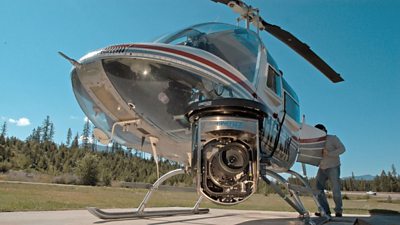
Aerial Filming and Airfields
Aerial filming may be from helicopters, fixed wing aeroplanes, hot air balloons, microlights or gliders, both in the UK and internationally. -
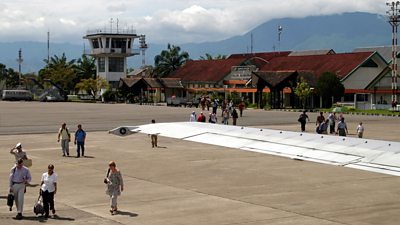
Airfields - Small
A guide to recording activities and travel from small airfields, as opposed to a commercial airport. -
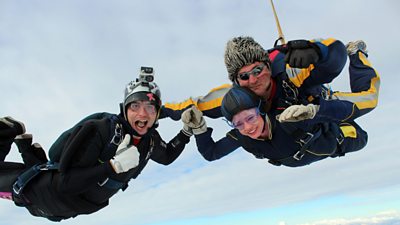
Adventure Activities & High Risk Sports
This Safety Guide provides H&S guidance to those who wish to set-up and film adventure activities / 'high risk' sports involving talent or contributors under our direction. -

Banned Airlines
EU Banned Airlines whose safety standards do not reach internationally recognised levels. -
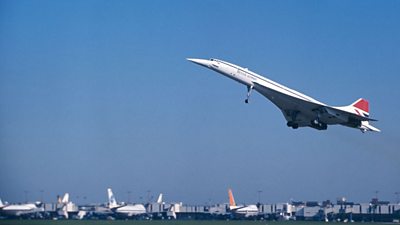
International Travel - Health and Safety
Health considerations when undertaking international travel. -
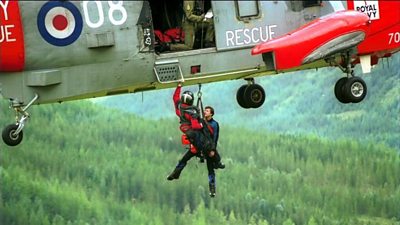 Guidance in the event of staff becoming seriously ill or injured in countries and locations remote from emergency medical services
Guidance in the event of staff becoming seriously ill or injured in countries and locations remote from emergency medical services -
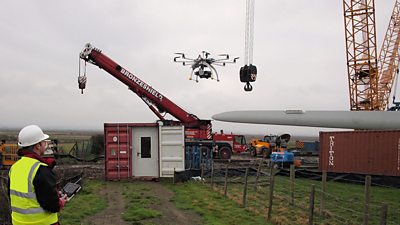
Unmanned Aerial Systems (UAS) AKA Drones
Guidance on safe use of drones
More from SSR
-
Your platform to record accidents, risk assessments, assurance monitoring and inspections
-
Safety Equipment Stores
Just one number to call: 020 3614 5155 -
����ý Safety Guidelines
An A-Z of ����ý's Health and Safety Guidelines -
Safety Advice Line: 0370 411 0464 Email: safety@bbc.co.uk
Events guidance - key links:
- Exhibitions
- General Guidance
- Indoor Location Recce Checklist
- Outdoor Location Recce Checklist
- Major Incidents & Emergency Planning
- Marketing and Promotional
- Noise Exposure
- Planning and Management
- Responsibilities
- Responsibilities Form
- Laser Lighting Effects
- Strobe Lighting
- Temporary Stages and Rostra
Health topics - key links:
- (����ý network only)
- Contributors Fitness to Participate
- Display Screen Equipment (DSE)
- (����ý network only)
- First Aid and Welfare on Location
- International Travel - Risks & Health
- Manual Handling
- Mental Health: Homepage
- (����ý network only)
- Personal Health and Wellbeing
- Pregnancy
- Psychological Trauma Support & Trauma Risk Management (TRiM)
- Tiredness and Fatigue
- Travel Health Contacts
����ý High Risk - key links:
- CBRN and Industrial Spills
- Covert Filming
- Crisis Management and Security Support
- Demonstrations, Protests and Crowds
- Disaster Coverage
- Door Stepping
- (����ý network only)
- (����ý network only)
- Public Order
- Safety Equipment Stores
����ý Journalism - key links:
����ý Productions - key links:
- Aerial Filming and Airfields
- Animals: Displaying and handling for performance
- Boats: Working on
- Children and Young People
- Driving
- Electrical Equipment and Systems
- First Aid and Welfare on Location
- Food Safety (Cooking and Catering)
- Remote Location Working
- Roads and Streets: Working by
- Security of Productions on Location
- Stunts
- Tiredness and Fatigue
- Unmanned Aerial Systems (UAS aka Drones)
- Vehicles: Recording in, from and around
- Working at Height: Mobile Elevating Work Platforms
- Working at Height: Tower Scaffolds
����ý Radio - key links:
- (����ý Network only)
����ý Security - key links:
����ý Sport - key links:
About this site
This site describes what the ����ý does in relation to managing its health, safety and security risks and is intended for those who work directly for the ����ý.
It is not intended to provide instruction or guidance on how third parties should manage their risks. The ����ý cannot be held liable for how this information is interpreted or used by third parties, nor provide any assurance that adopting it would provide any measure of legal compliance. More information
Some links on this site are only accessible when connected to the ����ý network
